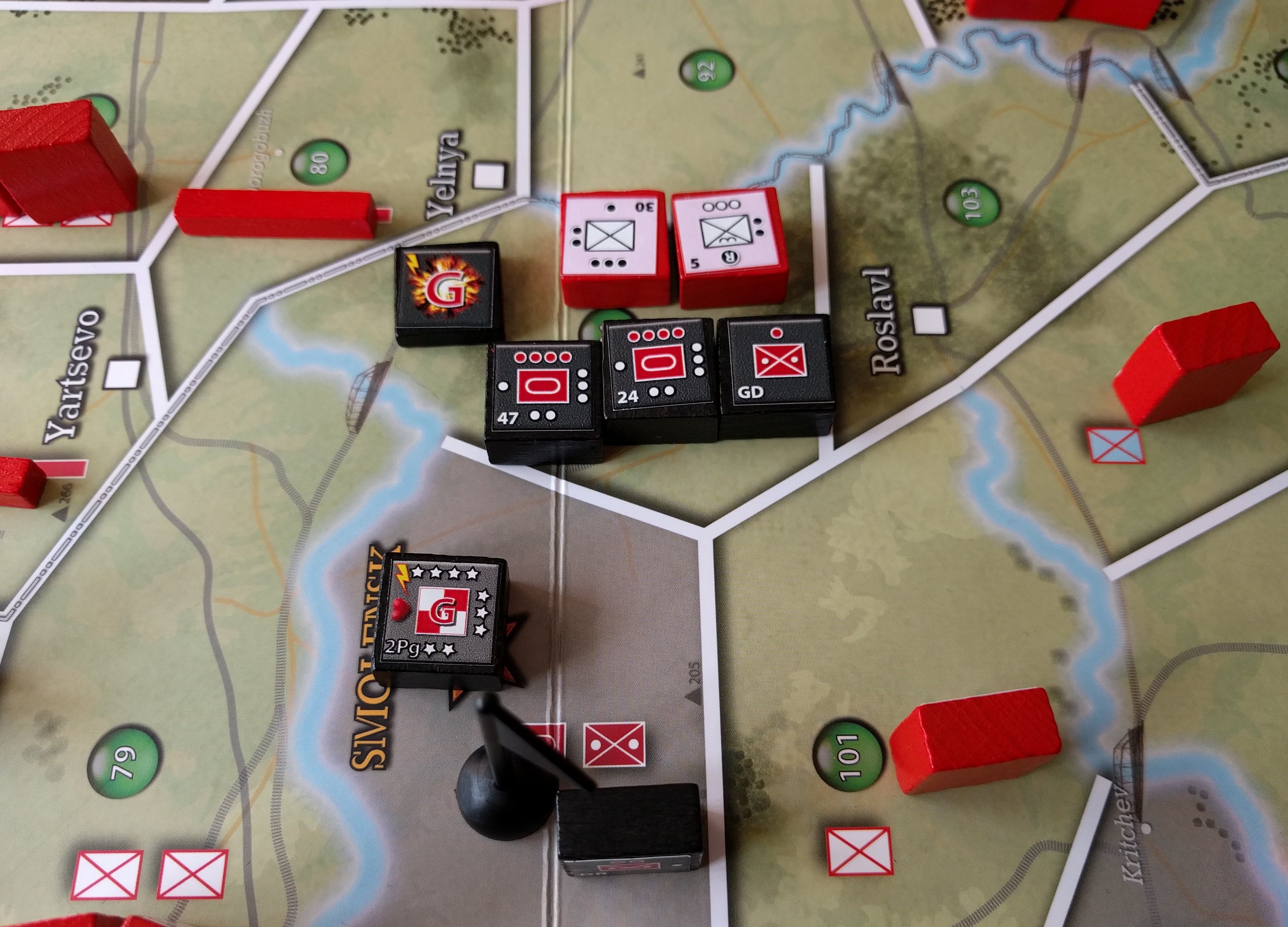I’m very partial to wargames, I started my gaming career like many others with Warhammer. I have tired of the most popular wargames though because they all seem to require constant keeping up, with new rules and miniatures etc. I understand this is a commercial necessity and that some like the changes to keep things fresh but personally after a decade of playing Warhammer and Warmachine I tired of it.
I’ve played with a few other systems since, working to find one I like. After a lot of thought I think there are a few aspects of war that I think wargames don’t deal well with (and perhaps they can’t) below are just the first 3 that come to mind.
Attack is a lot harder then defence.
The German invasion of Moscow, from the boardgame Moscow 41.
Certainly post 1900 attacking is a lot lot more difficult then defence. Attackers need superior numbers and support to take a well defended position. Most wargames don’t reflect this, usually both side are of equal size/points. This means the rules have to balance on equal points and so not promote defence too much. Clearly this is done because defence is boring, and since you only attack when you think you can win, the attacker needs to have an advantage. Not sure how to resolve this, you could have preset boards and units like memoir 44 but this is quite restrictive.
Scale
The Great War, Memoir 44 set in the First World War
Wargames regularly play fast and loose with scale. Guns that should shoot 100s of meters can only shoot the equivalent of a few meters. If a 28mm model is an inch high then 6 inches is the equivalent of 10 meters (24 is 40 meters!). This makes for weird situations where your troops cant shoot at something they can see and is only the length of a football pitch away. This is understandable as it makes movement more possible on a small board but I don’t really like it. Rare games do have infinite range systems which I think feels better, with just a bonus for being close, but it do restrict movement greatly so there is for work to balance this.
Objectives
The defense of Moscow again from Moscow 41
Deciding what is important and what is not is in itself a strategic decision. By cutting this out a battle it can feel very hollow and fake. Try and hold this swamp for 2 turns, or destroy this building for reasons. Both sides tend to know the others objective which is never how it is and often they have the same objective. Some times a victory with too many losses is not a victory, other cases a loss which held out long enough is a win. Ideally neither side should really know what the other is aiming for and maybe you shouldn’t know yourself what are acceptable losses? Most score system focus on winners I think draws can be more interesting.
These a just a few thoughts I have had and are usually the measure for when I play new systems. There are any more for me to try, and perhaps I could create my own with the above in mind.



